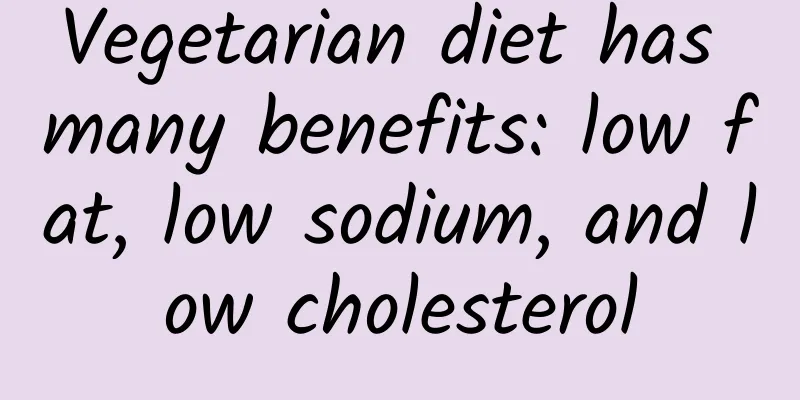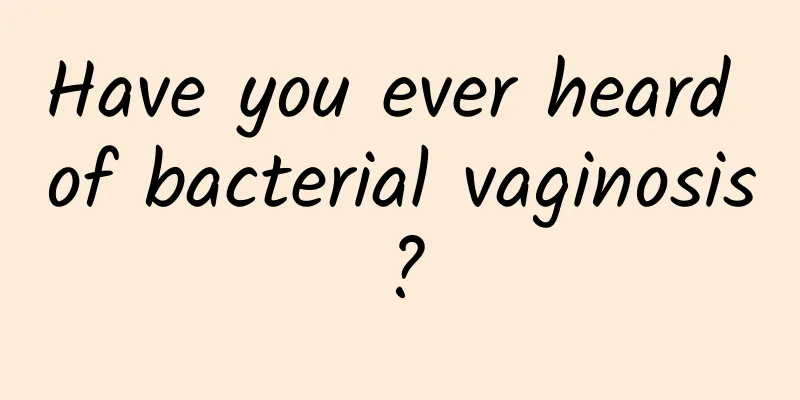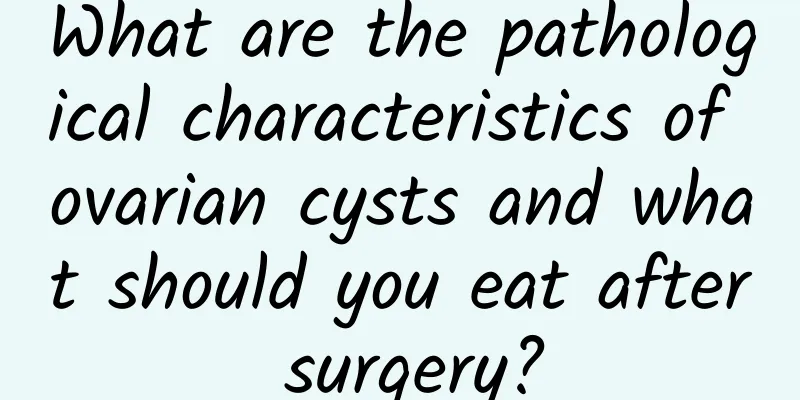Vegetarian diet has many benefits: low fat, low sodium, and low cholesterol

|
Text/Lin Qinggu (family medicine physician) More vegetables, more poison elimination! Learn about the 6 characteristics and benefits of a vegetarian diet Features【1】Low cholesterol The fats contained in human serum mainly refer to cholesterol, triglycerides (also known as neutral fats), phospholipids and free fatty acids. Cholesterol is divided into: "total cholesterol", "high-density lipoprotein cholesterol HDL (good cholesterol)", and "low-density lipoprotein cholesterol LDL (bad cholesterol)". Good cholesterol prevents arteriosclerosis, while bad cholesterol easily accumulates in the blood vessel walls and causes arteriosclerosis. Under normal circumstances, total cholesterol should be less than 200 mg/dl, HDL should be greater than 40 mg/dl for men and greater than 50 mg/dl for women, LDL should be less than 130 mg/dl, and triglycerides (neutral fat) should be less than 200 mg/dl. If total cholesterol is greater than 240 mg/dl, HDL is less than 35 mg/dl, LDL is greater than 160 mg/dl, and triglycerides are greater than 400 mg/dl, it is called "hyperlipidemia." Among all kinds of food, beef, mutton, seafood, egg yolks, and offal contain high cholesterol, which can easily cause the production of "bad cholesterol" in the body and should not be consumed in excess. Not only are vegetables low in cholesterol, but fruits and vegetables even have zero cholesterol. Moreover, they all contain "plant cholesterol," or "plant sterols," which can help the intestines inhibit the absorption of cholesterol, thereby achieving the effect of "reducing bad cholesterol and increasing good cholesterol." Patients often ask me, “They saw on TV that eating oats can lower cholesterol,” is that true? Studies both at home and abroad have confirmed that oats can indeed lower cholesterol. In fact, as long as it contains "β-glucan" ingredients, which are mainly water-soluble fiber, most of them are found in barley and oats. Moderate intake can lower cholesterol. Feature【2】Low fat "Fat" is an important food nutrient, mainly coming from animal fat tissue (such as lard), but can also be extracted from natural raw materials (such as olive oil), or from natural edible fats that have been chemically processed (such as margarine). For the human body, fat is not only responsible for supplying energy, but also an important element that promotes the taste of food; however, if consumed in excess, it can easily lead to obesity phenomena such as excessive body fat percentage and expansion of fat cell volume, which can become the fuse for triggering various chronic diseases. Among the six major food categories, vegetables have a very low fat content and are rich in fiber and various vitamins, which help promote digestion. For modern people who often eat a lot of meat and fish, vegetables are of course a must-have food for "staying healthy." But it is important to note that although leafy vegetables are low in fat, they absorb a very high amount of oil, such as spinach and Acai. Therefore, if you are cooking, try to use as little oil as possible and it is best to stir-fry them in water. Root vegetables and fruits, for example, are suitable for frying in oil because their nutrients are fat-soluble and their oil absorption rate is relatively low, such as carrots, tomatoes and green peppers. Feature【3】Low sodium "Sodium" is an indispensable mineral element for the human body. It can maintain normal osmotic pressure in the body and has an important impact on pH, nerve and muscle activity, heartbeat rhythm, etc. In addition, the salty taste of sweat and tears is also related to sodium. Once the human body lacks sodium, it is prone to fatigue, weakness, and lethargy; on the contrary, if it consumes too much, it is easy to cause high blood pressure, kidney cancer and other diseases. Generally speaking, we can get sodium from natural foods, processed foods, condiments or certain medicines, but the main source is "table salt" because one gram of table salt contains 400 mg of sodium. Therefore, whether you are eating out or cooking at home, you should be more careful and not prefer overly salty tastes. Among natural foods, animal offal (such as liver, pig heart, pig brain), shellfish (such as crab, shrimp, oysters) and lean meat have high sodium content; as for plant-based vegetables, grains, fruits, etc., the sodium content is generally low and good for health. Source: Apple House Publishing House [Food is its own medicine: Healthy diet to keep your stomach healthy and live a long life - Dr. Qinggu's happy menu] |
<<: The savior of weight loss and detoxification depends on 5 types of nutrients
Recommend
Understand the early symptoms of pelvic inflammatory disease
What are the early symptoms of pelvic inflammator...
How many millimeters of pelvic fluid is normal?
Pelvic effusion causes dysfunction of internal or...
What color is uterine fibroid bleeding? Is uterine fibroid bleeding malignant or benign?
What color is bleeding from uterine fibroids? Thi...
Mild symptoms of pelvic inflammatory disease
When pelvic inflammatory disease has mild symptom...
Leg edema, dare not wear short skirt to do spleen meridian leg exercise
As the weather gets warmer, many women tend to we...
Is it really a blessing to not gain weight? Don't be silly~3 major health crises are lurking
"Great! You never gain weight!" Most pe...
Sweet potatoes can detoxify and prevent cancer, but can’t be eaten after noon?
The trend of eating sweet potatoes for health is ...
Symptoms of premature ovarian failure How to prevent premature ovarian failure?
What are the symptoms of premature ovarian failur...
Can I get pregnant if I have irregular menstruation and polycystic ovary syndrome?
Irregular menstruation and polycystic ovary syndr...
How to treat primary amenorrhea
Amenorrhea is something that all women will encou...
What is good to put in chicken soup with uterine fibroids? What soup is good to make with uterine fibroids?
What should I put in the chicken soup with uterin...
Do uterine fibroids need to be removed? Can I still get pregnant if I have uterine fibroids?
Uterine fibroids are currently common gynecologic...
Can unmarried women get ovarian cysts? Don’t be too careless about these reasons!
Ovarian cysts are a major killer that seriously t...
To prevent cervical erosion, pay attention to keeping the female vulva clean
Keeping a happy spirit can enhance disease resist...
What are the dangers of artificial abortion?
In recent years, the probability of artificial ab...









